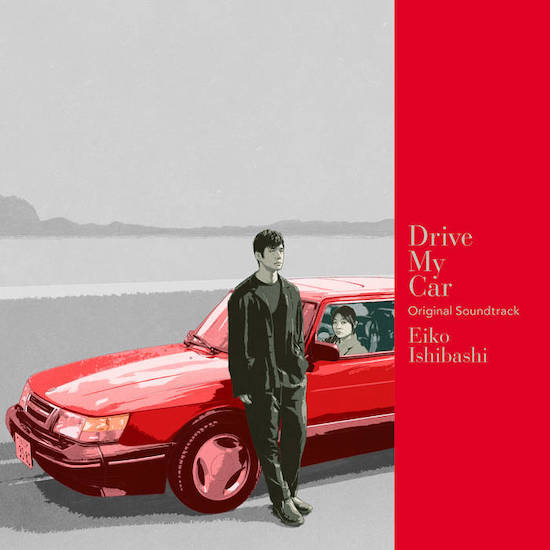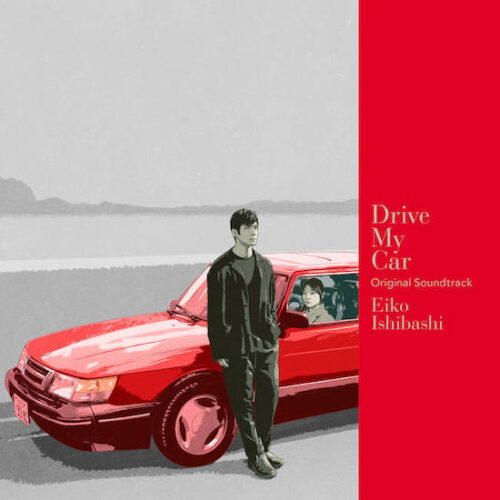Highways are a never-ending cycle of cars whirring by, driving back and forth on an endless loop. Japanese multi-instrumentalist and composer Eiko Ishibashi’s score for Drive My Car, an adaptation of acclaimed Japanese author Haruki Murakami’s short story ‘Men Without Women’, illuminates this cycle through rich melodies that patiently return and change over time.
Film, television and theatre scoring have long been parts of Ishibashi’s practice, coexisting with her solo work that’s often improvisatory and electronics based. She brings those experiences to Drive My Car, letting car door slams seep into heart-wrenching strings and eerie electronics. The score draws on a range of sounds, colouring recurring motifs with a blend of smooth, jazzy instrumentals, place-setting found sounds, romantic strings, and lush electronics.
The album’s tracks cycle through different versions of ‘Drive My Car’ and ‘We’ll live through the long, long days, and through the long nights’, finding strength in subtle changes of tiny details. The first time we hear the sweeping melody of ‘Drive My Car’, made of swingy rhythms and an ascending melody, the feeling is that of childlike wonder. But upon a later return with ‘Drive My Car (The truth, no matter what it is, isn’t that frightening)’, after poignant ups and downs and stirring strings have coloured the once-optimistic soundtrack, there’s a greater sense of knowing. This time, the piano is laid bare, rolling chords with deeper emphasis and melancholy. In these simple yet profound transformations, Ishibashi creates a narrative within the theme and variations, tracing a musical path that stands on its own.
Transformations can also be heard in the motives Ishibashi introduces on ‘We’ll live through the long, long days and through the long nights’, a track made of fragmented melodies and wheels against the pavement that cycles through three variations. The original version of the piece is a collage of sounds, which is a welcome change of pace from the warm romanticism heard on the title track and its variations. On ‘We’ll live through the long, long days and through the long nights’ (Oto), one of the most abstract tracks and one that pops out of the otherwise melody-driven music, blurry electronics blend into the distant sound of the highway. It’s the most static track, just field recordings and alien electronics that hang in forlorn stillness; notably, the track’s strongest motion is the cars driving by and rain hitting the ground.
Despite the continuous renewal of material throughout the soundtrack, its the delicate shifts, tied together by the sound of cars rushing by on the highway, that push the music ever-forward. It’s not much different than driving back and forth every day, returning to the same places only to find them a little changed.



